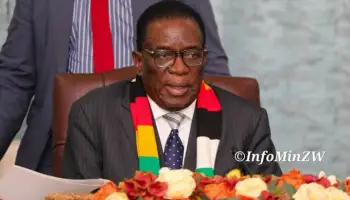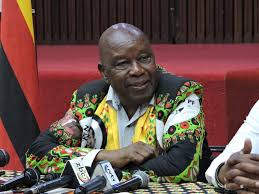Politics
Lights Out During Presidential Address Sparks Security and Political Alarm

By Shelton Muchena, Security Analyst – London, England
Harare was plunged into shock yesterday as President Emmerson Mnangagwa’s State of the Nation Address came to an abrupt halt when the lights went out inside Parliament, one of the country’s most secure venues. Millions watched live as the President, mid-speech, was left in total darkness, forcing a tense pause before power was restored. Experts warn the incident could dent public confidence in the country’s ability to safeguard its highest office.
Moments before the outage, ruling party MPs were caught on video singing, dancing, and chanting “2030 ndeya Emmerson”, signalling loyalty to the President’s future plans. Yet as the chamber fell dark, observers noted the stark contrast: celebration turned into vulnerability. Political analyst Florence Mzondi said, “What was meant to be a display of control instantly became a scene of weakness. Symbolism matters — and viewers saw that even literal power can be taken away.”
Officials from the Zimbabwe Electricity Transmission Company (ZETCO) and Parliament claimed a “localized transformer fault” caused the blackout, stressing that no intentional interference occurred. Minister of Energy, Tapiwa Moyo, told reporters: “The President’s address is of national importance. We are reviewing systems to ensure this does not happen again. Public confidence in infrastructure is paramount.” Investigations are ongoing to determine why backup systems failed during such a critical event.
Opposition leaders were quick to seize on the incident. Nyasha Chikowa, spokesperson for the National Democratic Alliance, said, “This blackout is symbolic. It shows the ruling party cannot guarantee even basic infrastructure at the heart of government. The people deserve answers — not excuses.” Some opposition MPs suggested it may have been a subtle message that not all in Parliament support the President’s agenda.
Social media erupted with commentary, memes, and outrage. “The President is literally in the dark! How are we supposed to trust the state when we can’t even see the lights during the most important speech of the year?” one citizen wrote. Others pointed to the contrast between MPs dancing before the outage and the sudden darkness, interpreting it as a metaphor for political uncertainty.
International media quickly picked up the story, highlighting the intersection of symbolism and technical failure. Shelton Muchena, Security Analyst in London, said, “From a security perspective, this is a cautionary tale. Whether accidental or not, the optics are damaging. Leaders must protect critical addresses both technically and symbolically.” Diplomatic sources expressed concern about the potential ripple effects on Zimbabwe’s perceived stability.
Security experts stress that any disruption at a high-profile event is a serious concern. A former military officer, speaking anonymously, warned: “The President has expressed confidence in his protective organisations. If this keeps happening, it threatens both his safety and the credibility of the state’s security machinery.”
As investigations continue, Zimbabweans are left assessing both the practical and symbolic implications of the blackout. While authorities insist it was technical, commentators note it exposed cracks in the state’s control over narrative, infrastructure, and security. The images remain unforgettable: a head of state in darkness, MPs caught between celebration and chaos, and a nation left questioning the lights and the future.



